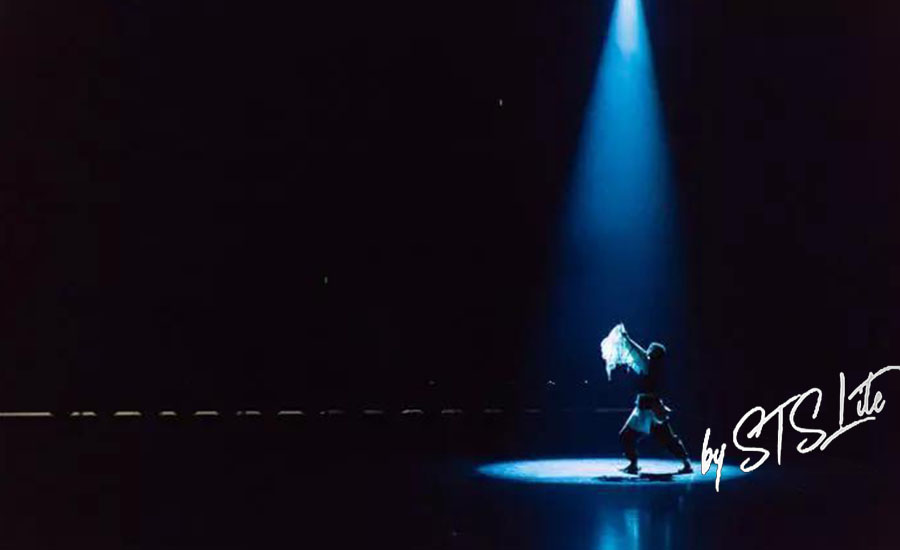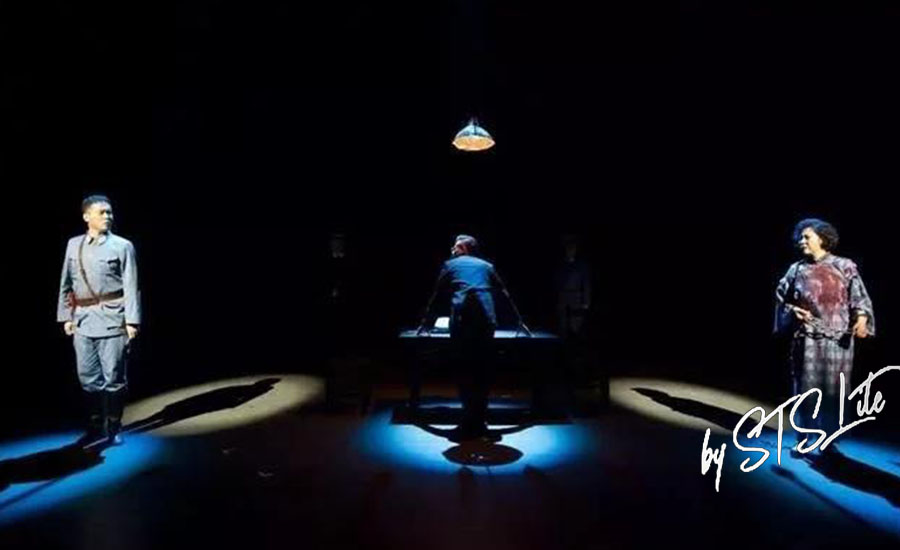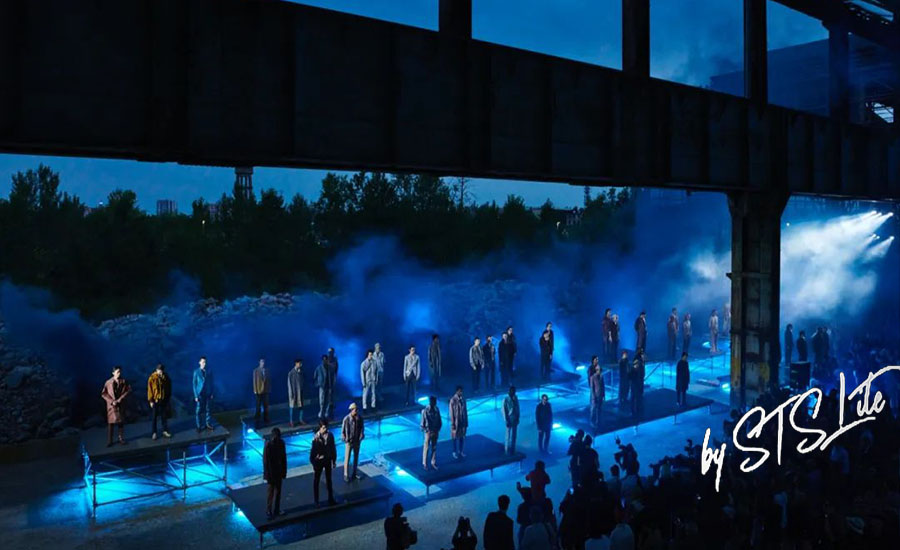Stage lighting plays an extremely important role in modern opera performance. Lighting operators have become a very important artistic work to control the stage rhythm, express the stage time and space, render the scene atmosphere, depict the characters and reflect the drama theme. With the development of science and technology, the status and function of opera stage lighting show its importance more and more. Successful stage lighting has become an organic factor that can complement the "four skills and five methods" in the opera art characterized by great integration. In some newly created operas, lighting has become an indispensable artistic means. The current opera stage has formed a pattern in which the theater art created by lighting and stage design and the traditional way of acting complement and invent each other.

Stage lighting, as a functional department of stage art, plays an increasingly important role in various forms of literary and artistic performances. The accurate completion of the lighting changes in the performance should be carried out by the lighting control personnel. The artistic quality of the lighting control personnel, the success or failure in the performance, and the accuracy of the operation are related to the quality of the whole performance. Since I was engaged in stage lighting, I have learned from my work practice and watching and learning the performances of other troupes that a competent stage lighting controller must make ingenious ideas according to the plot to produce certain artistic effects. In the performance, the lighting control personnel should communicate with the audience through the lighting, and contribute to the audience with a visual feeling to achieve the artistic effect. Therefore, lighting controllers must regard themselves as actors who do not appear on the stage to "perform" their "roles". Each change of lighting in the performance should highlight its drama and artistry. Whether it is natural phenomena such as lightning and thunder, bright sunshine, dense clouds, wind, flowers, snow and moon, or the space-time transformation of spring, summer, autumn and winter, it is reflected in a certain dramatic conflict. Lighting control personnel must understand the play, understand the play and enter the play before they can play their "role" well. To achieve this, we must have certain opera knowledge, be familiar with the script structure, understand the intention of the director and lighting design, the performance of the actors and the change of the plot.
Gordon clay, a famous British comedian and director, said: "light is the brush of the stage and the soul of the stage." this fully emphasizes the importance of light on the stage. Because the final completion and embodiment of a performance, especially the final synthesis of various departments on the stage, the last process is completed by lighting. Art, clothing, props, make-up, sound, and even the performance and scheduling of actors need light to do the final color brushing and painting. Light needs to guide the audience's line of sight, what to see, what to hide, what to highlight and what to dilute. Light needs to organically and orderly integrate all stage art departments to form a joint force and contribute to the performance. The lighting operator shall reflect the designer's intention; The falling light falls into the music, the receiving light is received in the rhythm, the brightness is turned to the intensity, and the color is selected to the coloring. An excellent lighting operator can more perfectly reflect the real intention of the designer in the operation process and receive more special artistic effects for the theater. In the specific work, the lighting operator should accurately grasp the speed of lighting change and the accuracy of light and shade according to the change requirements of the plot, so as to achieve the perfect coordination effect, and reflect that the lighting is the "soul of the stage". In each performance, the stage lighting operators must devote themselves to the drama environment, integrate the programmed operation skills into the emotional waves of drama of joy, anger, sadness and joy, and render, support, depict and reveal the connotation of drama works.

The quality of lighting in drama not only requires the lighting operators to memorize the plot, the intensity of lighting and the subtle changes of switching light, but also requires the lighting operators to have skilled and solid professional technology. Especially for the lighting control on the opera stage, we should memorize the singing of the characters, understand the music, and master the gongs and drums of the band's martial arts field, which has certain advantages for me who was born as an actor. I know when and what actors need. I can have spectrum in my heart and present the concept, elements, colors and styles of light to the greatest extent. In addition to the basic theory and technology of electrician, it is more important for stage lighting operators to understand the application of light and color matching skills, and constantly improve their literary literacy and drama theory level, so as to enhance their aesthetic ability and artistic appreciation. We often see such scenes where actors are wearing only white clothes and skirts. The projection of a beam of red light, the red light on the dress is dazzling; Then the green light, the actor's dress and green. There is also the conversion of the overall tone of the stage. Blue night, pink dawn and orange evening, all lighting operators can be familiar with the changes of stage light color. The reason is very simple. It seems to be an inevitable result that what light and color is projected reflects what color. If you ask an actor to wear a white dress, it is red in the red light. If you wear a green dress, what is the effect in the red light? Probably many lighting operators are difficult to answer comprehensively. Therefore, color knowledge, especially the light reflection theory, is not only very important to the designers of dance beauty, but also one of the essential basic theories for the lighting designers and operators to do a good job in artistic creation. Only in this way can we have ideas and creativity. It is easy to fully embody the stage lighting art of opera on the stage.
The preparation of lights before a drama performance is also very important. Lighting operators should have a deep and detailed understanding of the performance theater before the performance, carefully debug all light apertures, color films and light transmission angles in strict accordance with the requirements of lighting design, meet the specified requirements, observe the work of the light control console at any time, and quickly eliminate and repair its simple faults.
Using lights to fully express the inner feelings of actors is the key for lighting operators to operate lights. First of all, according to the requirements of lighting design, the plot and aria should be well recorded, and carefully run in with actors and bands through ring rehearsal and rehearsal to achieve the best effect.

As a lighting operator, he should communicate with the director and various departments in time, grasp the scale naturally, accurately and in place, and the expression methods, technical means, color composition and rhythm control should change according to the development of the plot. At the same time, we should also avoid appearing in the performance (1) relying too much on high-tech technology and equipment, blindly pursuing the brilliance of light, and failing to organically integrate the unique language and expression forms of light into the performance, resulting in a noisy host, the form is greater than the content, and even interfering with the theme art and performance, becoming the pollution of light on the stage. (2) With the development of science and technology, we still hold the old concept and are even satisfied with the function of performance lighting. (3) In terms of creation, he is passive and cannot understand and explain the performance from a professional point of view, provide suggestions for the overall stage creation, blindly obey, and even follow the director's instructions such as all lighting colors and changes.
Therefore, as the direct operator of light, his responsibility is very important. He is the key to the success of a play. This requires lighting operators to constantly strengthen their business learning, but also contact all kinds of new things. They must understand the application of high-tech products on the modern opera stage, so as to keep up with the development needs of the times and become a qualified opera lighting operator.
Copyright © 2021 GuangZhou STS Lighting Equipment Co.,Ltd. | All Rights Reserved